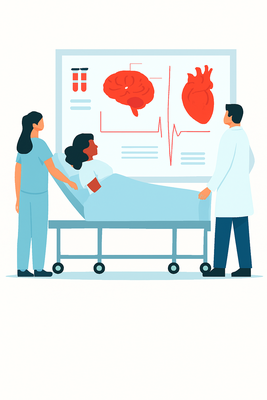Medicine and Health: Foundations of Human Well-Being
-
Medicine and health are essential components of a thriving society, influencing everything from individual quality of life to global development. As science and technology advance, so too does our ability to prevent, diagnose, and treat a wide range of conditions. The integration of public health strategies with clinical medicine has created a more holistic approach to wellness, emphasizing both care and prevention.
Modern medicine has made remarkable strides in surgical techniques, diagnostics, and pharmacology. Procedures like laparoscopic surgery, organ transplantation, and targeted cancer therapies have transformed outcomes for patients worldwide. One such life-saving intervention is aneurysm clipping a neurosurgical technique used to treat brain aneurysms by isolating the weakened blood vessel to prevent rupture and hemorrhage.
Public health initiatives complement clinical care by addressing the broader determinants of health. Clean water, vaccination programs, and health education campaigns have significantly reduced the burden of infectious diseases. Mental health awareness and access to psychological support are also gaining recognition as vital aspects of overall well-being, helping to destigmatize conditions and promote early intervention.
Despite these advances, challenges remain. Health disparities, rising costs, and the global threat of pandemics underscore the need for resilient and equitable healthcare systems. Innovations in telemedicine, artificial intelligence, and personalized medicine offer promising solutions, but ethical considerations and accessibility must guide their implementation.
In conclusion, medicine and health are dynamic fields that continue to evolve in response to societal needs and scientific discovery. By combining technological innovation with compassionate care and public health strategies, we can build a future where wellness is accessible to all and disease is met with effective, timely intervention.





